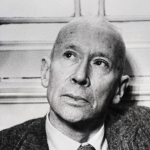for Shelley
Oh you, the sprightliest & most puggish, the brightest star
Of all my lively loves, all Ladies, & to whom once I gave up
My heart entire, thenceforth yours to keep forever
Locked up in your own heart’s tiniest room, my best hope, or
To throw away, carelessly, at your leisure, should that prove
Your best pleasure, Who is that dumpy matron, decked out in worn &
faded
Shabby army fatigues which pooch out both before & behind, now
screeching
Scoring me painfully in philistine Commedia dell’arte farce, low
summer fare
Across a pedestrian Ferry’s stretch of water in some meshugganah Snug
Harbor
And once more, even, fiercely pecking at me in the cold drab Parish
Hall of
Manhattan’s Landmark Episcopal Church, where a once Avant-garde
now Grade School
poetry Project continues to dwell, St. Mark’s Church-in-the-Bouwerie,
whose
Stones hold in tight grip one wooden leg & all of Peter Stuyvesant’s
bones?
Who is that midget-witch who preens & prances as she flaunts her lost
wares,
Otherwise hidden beneath some ancient boy’s flannel-shirt, its tail out
& flapping, & who
Is shrieking even now these mean words:
“Hey Ted!” “Hey, you Fat god!”
& called me, “Fickle!” “Fickle!”
& she points a long boney finger
at me, & croons, gleefully.
“Limbo!” “That's where you really live!”
& She is claiming to be you
as she whispers, viciously,
“Alone, &
In Pain, In Limbo, is where you live in your little cloud-9 home Ted!
Pitiful!”
She has a small purse, & removing it from one of her
shopping bags
She brings out from inside that small purse, my withered heart; &
lifting it
high into the air over her head with her two hands, she turns it upside
down
unzips its fasteners, & shakes it out over the plywood floor, happily.
“Empty,”
she cries loudly, “just like I always knew it would be!” “Empty!”
“Empty” “Empty”
I watch her, and think,
That’s not really you, up there, is it,
rose? Rochelle? Shelley?
O, don’t be sad, little Rose! It’s still
Your ribbon I wear, your favor tied to the grip of my lance, when I
ride out to give battle,
these golden days.




















Comment form: